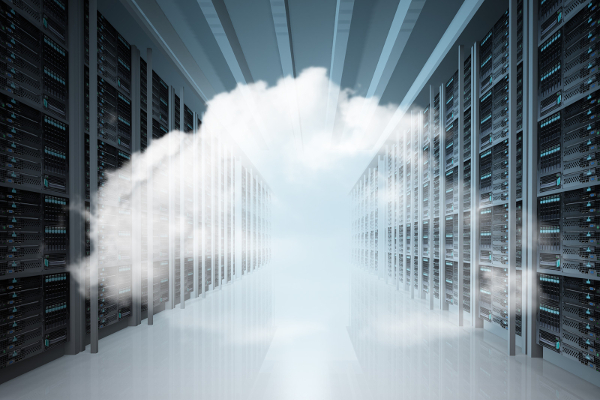When it comes to choosing a new ERP system, your first decision is probably whether to go with a cloud-based solution or an on-premise system. But how do you decide which is best?
Neither is necessarily better than the other, and each has its own benefits. On balance, the question should probably be … which is right for YOU. Which is the best fit for your business, for your needs, and for your objectives?
What’s the difference between cloud and on-premise software?
The term “cloud” is a metaphor for the internet. Cloud computing provides on-demand processing resources, data and software to computers and other devices via the internet.
In contrast, an on-premise system is exactly that, a software system that is installed on a company’s own servers and computers.
Because of the differences in the way the software is accessed, each type has its own benefits.
Benefits of cloud ERP
There is no doubt that cloud computing is widely adopted. Nowadays, more than four in every five organisations (84%) use cloud software, and this has been steadily increasing over the years from just 48% in 2010*.
With cloud adoption on the rise, it’s not surprising that it has a number of key benefits:
Speed of implementation
Because the software isn’t installed locally, there is no need to spend time procuring and installing the IT hardware that would be needed to run it. This can save you considerable time, especially if you have multiple subsidiaries or office locations.
Scalable
For growing companies, the cloud is perfect for scaling up. Additional users and business modules can easily be added, without the need for any software installation. For example, it’s quick to add new users if a company opens up a new office or department. And they can add ecommerce, or payroll or CRM – and other modules – if needed.
System performance and uptime
Cloud providers have reputations to maintain, and their customers depend on their services, so they need to commit to achieving high average uptimes. NetSuite, Balloon’s choice of cloud ERP, commits to a 99.5% availability for its customers and has an average uptime much higher than that (99.98% over the past year). Local IT departments are less likely to be able to achieve these sorts of results.
Easier upgrades
Not only do you save money on the maintenance side of things with the cloud – because upgrades are included in the subscription cost – but companies also experience less downtime when it comes time to upgrade. Because the software is hosted in the cloud by the supplier, they can upgrade it in the background and roll out the new software when ready. Many businesses using on-premise software are reluctant to upgrade because of the costs and the disruption to the day-to-day running of their businesses.There’s also no downtime when you upgrade. Upgrades are all undertaken in the background by the service provider, so that you are always using the latest software version.
Cost of ownership
With no need for an initial investment in hardware and no software hosting costs, cloud-based ERP is often the least expensive option. There’s also a lower investment needed for staff to provide in-house IT support for the software.
Benefits of on-premise ERP
There are also factors in favour of having an on-site, server-based ERP system:
Control
An on-premise system gives you greater control over system maintenance, security, and software releases. There may be valid reasons why you don’t always want the latest software version, so you may want to proactively decide when to upgrade.
Security
Many businesses are concerned about data security and data privacy. If you work in a highly secure business, you may insist on having full control over your data and systems and may not feel able to trust the cloud with the integrity and confidentiality of your data. In such cases, the benefits of ensuring that your business data is held to a level of security that you can dictate could well outweigh the other benefits of operating a cloud software system.Equally, with locally-based servers, you are not reliant on a third party for when and how backups are taken. Instead, you determine the frequency and security of your own backups.
Compliance
Regulatory requirements might dictate that sensitive data is not held in the cloud, especially if the data is transferred outside of your country. Similarly, your company’s own internal guidelines might restrict you from sharing certain data outside of your own corporate firewall. Companies need to determine what is right for their business and abide by both the external and internal rules governing it.
Customisation
With a system that is fully deployed on your own servers, the advanced configuration and customisation options are more numerous. While cloud software is customisable to a degree, the possibilities using on-site solutions are greater.
In conclusion therefore, no one system is inherently better than the other. But one will be more right for you than the other and only you can determine that.
If you’d like some help in informing your own decisions, Balloon One provides both cloud-based and on-premise ERP software. We are uniquely placed to help you decide whether to choose cloud-based NetSuite, or on-premise SAP Business One, as we are the only UK supplier to offer both.
If you would like more information, or a free demonstration of both systems, please call us on 020 8819 9071 or contact us using the website form.
Can’t decide between NetSuite and SAP?
As Balloon One is the only UK partner of both these leading systems, we are able to offer unbiased advice on which solution is best for your specific business needs. Download the comprehensive ‘SAP Business One vs NetSuite’ comparison to explore the capabilities of both ERP systems.
* Cloud Industry Forum: UK Cloud Adoption Snapshot & Trends for 2016
Cloud and servers image purchased from canstockphoto.com
